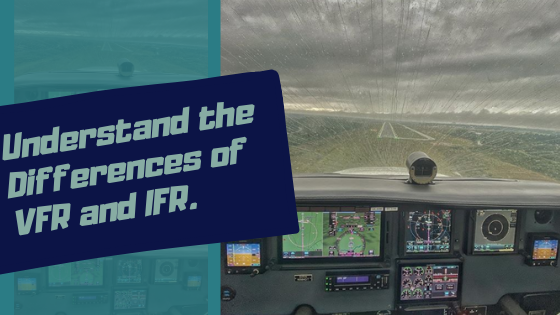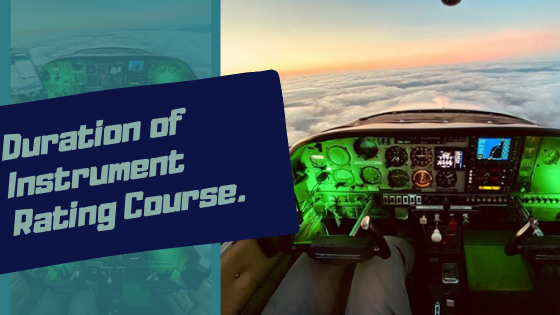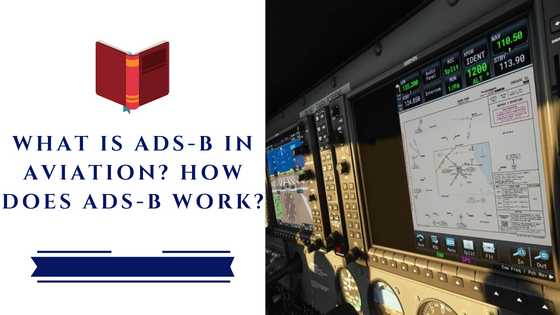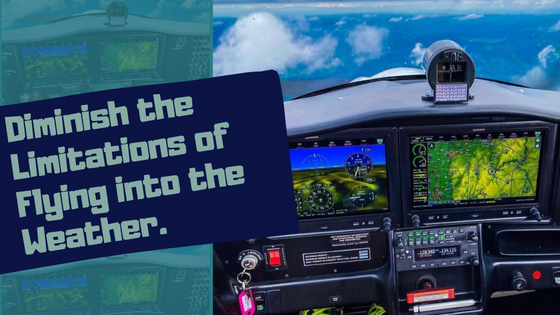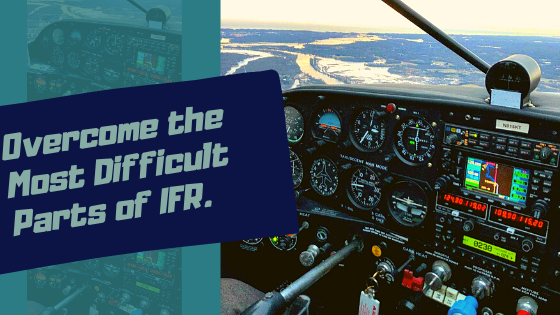Accepting the challenges of IFR flights is worthwhile.
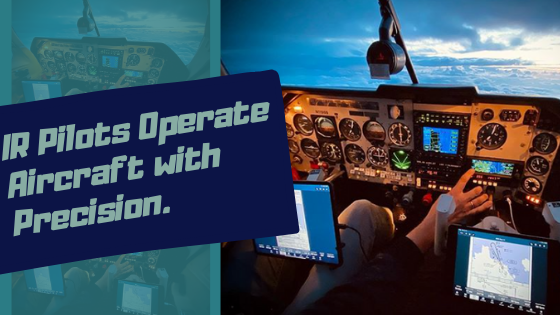
An instrument rating allows a pilot to fly more often, opening doors for private pilots to fly in any weather conditions.
I will tell you why a pilot needs an instrument rating and how having an instrument rating is worth the effort and money.
Being an instrument-rated pilot doesn’t mean you can merely fly the airplane in bad weather conditions. IFR rating trains pilots to:
- Take long cross-country flights without hesitation of weather en-route and a class of airspace in the destination airport;
- Depart from an airport in instrument meteorological condition;
- Fly with precision and improve approach and landing;
- Improve workload management inside the cockpit;
- Lastly, become a better and safer pilot in VFR and IFR flights.
Getting an instrument rating is worth it. If you can afford it, then go for it. Pilots can operate in IMC with little effort and have more thrilling experiences. If you intend to work as a commercial pilot in the future, getting an instrument rating sooner is the right choice.
Some pilots think instrument rating is a waste of money, but I believe instrument rating brings indisputable benefits for aviators, which I will explain here.
Pilots can now fly long cross-country flights in IMC.
Assuming you have a private pilot license and want to fly to new destinations for recreation.
Or perhaps you have a family gathering to attend, and you can quickly fly there as you have a private pilot license.
But wait, the destination airport has a Class B airspace; worse, you cannot enter the airspace without an instrument rating.
What will you have to do then?
Take a long drive or a commercial flight to meet your friends and family there.
An instrument rating expands the horizons for private pilots. Having an instrument, you can enter new airspace and fly into congested airspace with instructions from the tower without hesitation.
Acquiring your instrument rating will develop your flying knowledge and eliminate the fear of traveling to destinations further from your departure airport.
You will have the courage and the skills to fly to unknown destinations regardless of worries about the airspace and the weather.
With longer cross-countries, you will log more flying hours. Logging flying hours is not a priority unless you intend to work as a commercial pilot sooner.
But with an instrument rating, you can fly to different destinations you were nervous about flying too.
Fly in IMC.
Many VFR flights are canceled every day due to meteorological conditions near the departure airport.
Although you can see in the GPS that the weather en route and your destination are fantastic for flying, you had to cancel your flight merely because you cannot take off.
An IFR rating pays off when you can take off from the departure airport in instrument meteorological conditions(IMC).
You will have no restrictions as you are rated to fly solely using instruments.
Imagine it like this:
You are a private pilot without an instrument rating and have planned a cross-country flight.
Your destination airport is 150 nautical miles apart.
You took off with your friends for a weekend to a new destination.
You took off safely; unfortunately, you encountered a thunderstorm en route with poor visibility!
- What will you do now?
- Are you going to return to your base?
- Are you going to fly blind through the adverse weather?
- Do you intend to endanger your life and the life of your friends just because you are determined to have a fun weekend?
An instrument rating prepares pilots to make the right decision in situations like this.
An IFR-rated private pilot can fly without having any visual reference outside.
That’s the best thing about becoming an instrument-rated pilot.
Facing instrument meteorological conditions en-route to your destination airport will not hinder your weekend plan, as you know how to operate a safe flight without visual reference.
Use your instrument flying skills and pass through the rough weather.
Safely landing after a bumpy flight through adverse weather will boost your friends’ confidence in you as an excellent pilot.
Instrument-rated pilots understand the weather better than VFR pilots. Instrument pilots need in-depth knowledge of meteorology as they need to forecast weather. Thus they become good at reading and predicting weather en route.
By learning to read the weather and expect what they face, pilots can plan their flights to avoid dangers.
Fly with precision, thus improving approach and landing.
For instrument flying, pilots need to use en-route charts and approach plates to arrive at an airport.
Pilots can make a precise approach by building a habit of using these charts.
Using the Instrument Landing System (ILS), pilots can make beautiful landings, just like airliners.
In the beginning, all the charts may seem overwhelming for private pilots to read, but with some practice, pilots can make perfect landings in any airport with ILS.
Especially pilots can make a better approach and perfect landings even in poor visibility and meteorological conditions.
The approach plate and the ILS will guide you step by step to land the aircraft with minimum visibility.
Overall getting IFR is worth it as you will become a safer pilot. You will learn the use of instruments and develop flight performance.
Improve workload management inside the cockpit.
As a pilot, you need to multitask. As an instrument pilot, you have to multitask even more.
Instrument training is overwhelming for pilots in the beginning. But don’t fret; if you study at home and practice using the simulator, you will get used to the tasks.
All those tasks will become a necessity in your instrument flight, and in time you will not be overwhelmed anymore with practice.
But multitasking as an instrument pilot will teach you something more as a private pilot.
Once you are instrument rated, you will improve in workload management.
Therefore, when you fly VFR next time, all those multitask activities in your VFR flight will seem straightforward.
The tasks in a VFR flight compared to an IFR flight is negligible. Once you have taken an IFR flight and passed your rating, flying VFR will become much more straightforward for private pilots.
Become a better and safer pilot on all kinds of flights.
Instrument rating grows any private pilot in different aspects. A less experienced pilot can take flying skills to the next level by combining all instrument rating elements.
Instrument rating teaches pilots numerous ideas to enhance their flying skills.
You can join an elite pilots club regardless of how few hours you have logged. Not all pilots have instrument ratings.
Hence non-instrument-rated pilots cannot say they can fly in IMC. Because flying in adverse weather without an instrument rating is too dangerous.
You have an instrument rating and knowledge, and you can land an airplane without visibility following the instructions on an approach plate.
Achieve the privilege of flying to various destinations and class B airspace regardless of how bad the weather is.
Fly in congested airspace, maintain safety, and enhance your communication skills massively.
You will not endanger the life of any passengers.
If you have the money and the will, I say get your instrument rating because it is worth it.
With the instrument rating, you will be able to discover new destinations and new routes.

